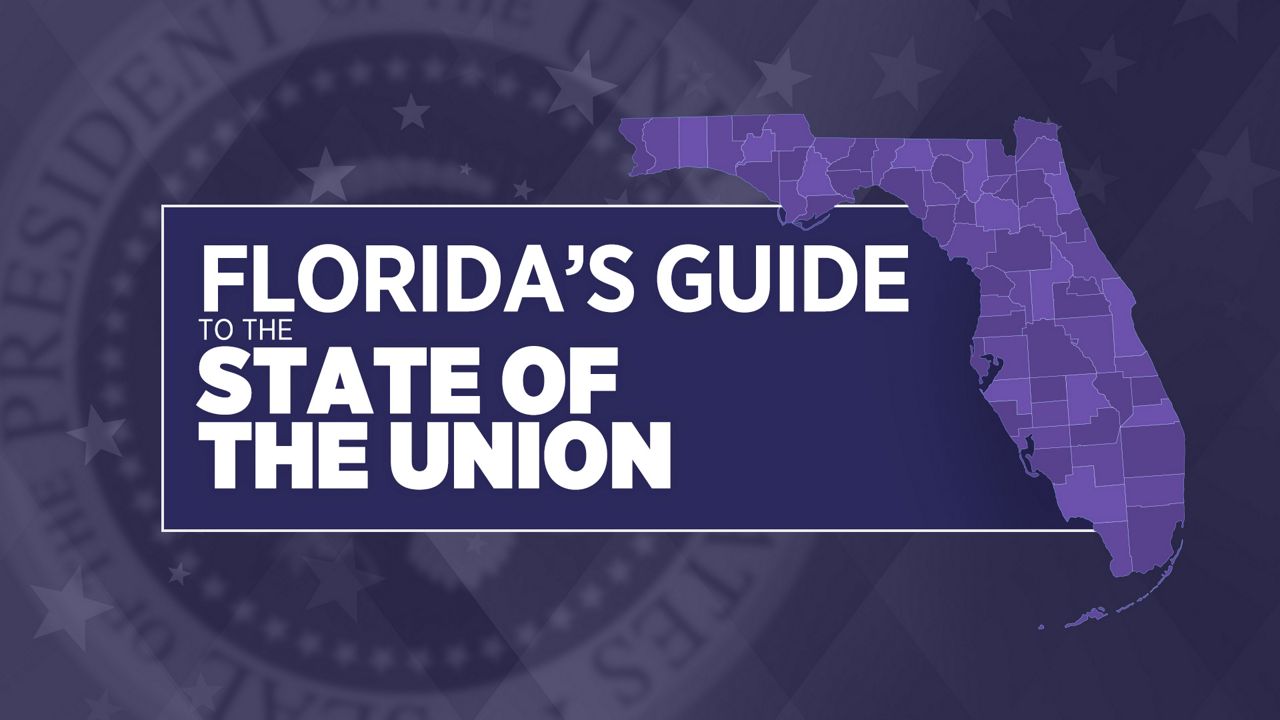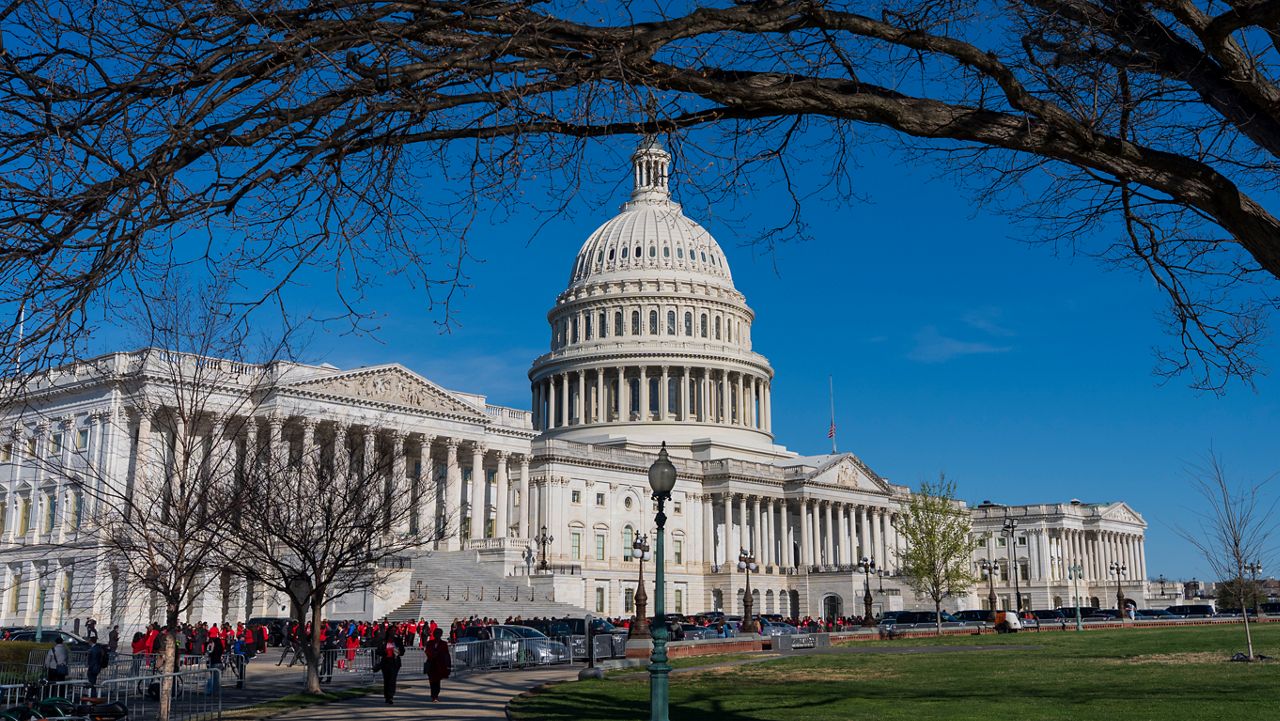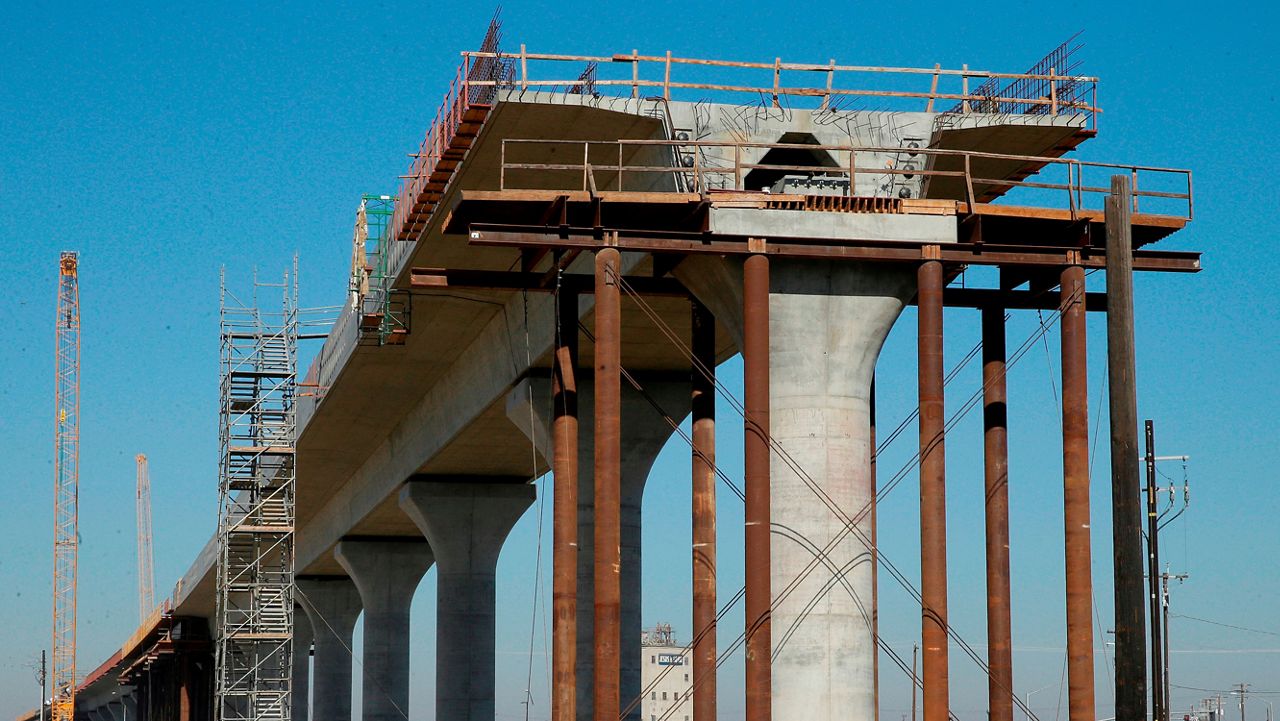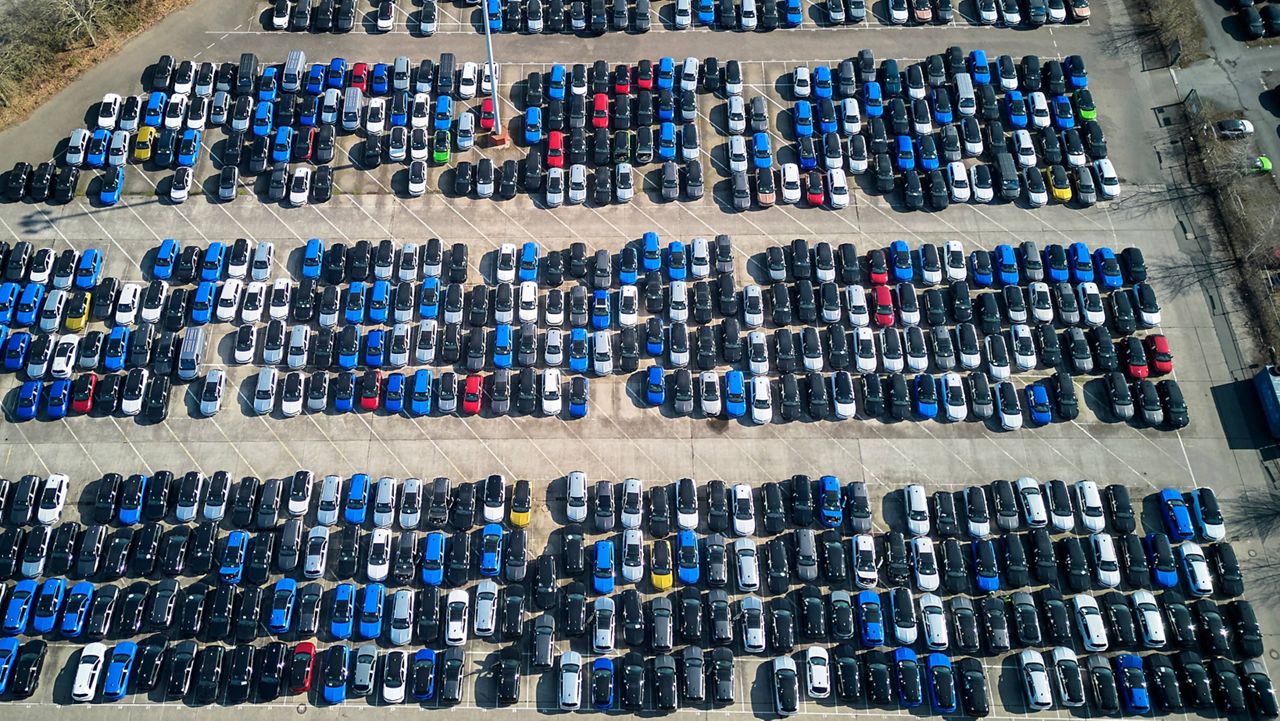ORLANDO, Fla. — President Donald Trump delivers the State of the Union address Tuesday, albeit about a week late.
- Hear from your DC-based lawmakers about what they think about the State of the Union.
- Special coverage begins at 8:30 p.m. for the 9 p.m. address Tuesday, which Spectrum News is taking live. Away from a TV? Watch full coverage on our live stream.
- JUMP TO:
The president and House Speaker Nancy Pelosi agreed to delay the annual address to Congress until the government shutdown ended, which it did after 35 days.
However, it’s just a temporary measure, meant to last until February 15, or until Trump gets a border security measure he is willing to sign.
The shutdown, and the threat of a second shutdown, will undoubtedly loom over the State of the Union on Tuesday, along with the issue at the center of the debate: border security.
But the State of the Union is also meant to tout the president’s accomplishments over the last year and give us a glimpse into what the administration’s priorities are in the year ahead. Plus, there is another thing that may be on the president's mind Tuesday: 2020.
"For President Trump, the State of the Union address is the unofficial start to his 2020 reelection campaign, so he's going to have to effectively deliver a message that will satisfy the moderate voters, while keeping his base energized," Spectrum News political analyst Frank Torres said. "This means walking the tightrope between delivering on his promise of border security without pushing congress towards another government shutdown, and illustrating the progress he's made over the last year in other areas such as the economy and foreign policy."
Senior White House officials told the Associated Press on Friday that the theme this year is "Choosing Greatness."
5 Things Floridians Should Look For
In Florida, there are several issues we should watch for in the president’s State of the Union address:
1. Immigration
Immigration was a hot-button issue in the midterm campaign and continues to be a contentious issue for the president. With the focus on border security, it’s a foregone conclusion that the president will talk about the issue, but what does it mean for Florida?
No doubt the president will again focus on the enforcement aspect of immigration policy, as he did last year in the State of the Union. The Department of Homeland Security expanded detention centers for migrants, particularly children, with one of those being in South Florida.
During the 2018 State of the Union, Trump pitched a broad framework for a new immigration policy, his so-called “four pillars.” With lawmakers negotiating a border security deal, a reminder about one of those pillars — an eventual pathway to citizenship for those immigrants in the country under the DACA program — is possible.
Two other immigration issues we should look for: immigrants in the country under the temporary protected status program. Protections for that program were terminated last year for immigrants from El Salvador, Honduras, Sudan, and Haiti, though a federal judge blocked the decision.
The president may talk about the need for reform to the TPS program, and to policies for those seeking asylum.
This may also affect a growing group in Florida: Venezuelan refugees. Thousands of Venezuelans have escaped to America as the government crisis worsens in that country. The president has openly criticized the Nicolas Maduro regime and, in January, supported an opposition leader, but efforts to get TPS status for Venezuelan immigrants has not been on the president’s agenda.
A bipartisan bill in Congress is seeking to make that happen. The president is likely to talk about the pressure he’s putting on the Maduro regime, but whether he talks about helping Venezuelan immigrants in the country remains to be seen.
2. Health Care Reform
Last year, the president pushed repealing and replacing the Affordable Care Act in the State of the Union. That initiative again failed in Congress, but don’t think the president is done yet. Lawsuits to further strip provisions of the act continue. Meanwhile, the president signed laws in October aimed at reducing drug costs by banning gag clauses on commercial health insurance.
Despite this, recent data shows prices for brand-name drugs continue to rise, though the pace is slower. The skyrocketing costs of insulin for diabetics and the increase in prices of other common medications is also making the issue a more critical one.
On Friday, Health Secretary Alex Azar called on Congress to pass a new prescription drug discount plan. The plan would make rebates among drug companies and insurers more available directly to consumers.
Look for the president to talk about other proposed changes to health care and efforts to get around the ACA.
3. Environment and Infrastructure
Environmental policy is not an issue the president talks a lot about in general. There’s no precedent for him doing it in the State of the Union. However, during the midterms, the president made a big deal about signing off on funding for the Lake Okeechobee reservoir project, which is thought to be important in stemming the flow of blue green algae to both sides of the Florida coast.
"The president may speak of the environment and particularly water quality and/or the Everglades," said Dr. Aubrey Jewett, UCF political professor. "Certainly Sens. Rubio and Scott and Gov. DeSantis will all be hoping to see this issue highlighted and to see a follow through on more federal support."
It’s possible he could fold the Lake O issue into a broader discussion about infrastructure and in regulation cutting, which has been one hallmark of his administration when it comes to environmental policy.
4. Opioid Crisis
The Trump administration made a big push on fighting the opioid epidemic this past year. The Department of Health and Human Services awarded Florida more than $61 million in October. Much of the money is meant to go to treatment and protection, as well as expanding access to services in rural organizations and community health centers.
The Justice Department also awarded millions of dollars in grants to programs across the country, including in Florida, and expanded prosecution efforts.
Look for the president to tout successes in efforts to fight the opioid epidemic, and possibly a look at plans going forward.
5. Disaster Funding
Hurricane Michael devastated the Florida Panhandle last year. Gov. Ron DeSantis met with the president last month. The president agreed to expand the number of days the federal government is reimbursing state and local governments for cleanup efforts after Michael. The move potentially gives those local governments hundreds of millions of dollars more for cleanup costs.
The continued recovery of Puerto Rico, post-Hurricane Maria, may also get a mention. During the partial government shutdown, the president hinted at redirecting aid money to pay for the wall, which Puerto Rico’s governor said would be a problem for the U.S. territory.
Other Likely Topics
Unity is going to be a focus of the president's address Tuesday, according to an excerpt released by the White House.
"We can bridge old divisions, heal old wounds, build new coalitions, forge new solutions and unlock the extraordinary promise of America's future," Trump plans to say.
He's is also likely to tout his administration's economic successes, including job creation.
We may also expect to hear from the president about recent foreign policy decisions.
"The president is likely to discuss his decision to withdraw troops from Syria and Afghanistan and to withdraw from the INF treaty with Russia," Jewett said. "These are important to the security of the entire country, but particularly important to the many active and retired military that live in the Sunshine State."
Who's Coming to the State of the Union?
The annual address brings most of the federal government's elected officials under one roof — most of the executive branch (one cabinet secretary stays behind as "designated survivor"), the Senate and House members, and many of the Supreme Court justices (in recent years several have sat out the address).
The president will likely have guests who will sit in the first lady's box who emulate the topics he touches on in the address.
Likewise, the gallery will also include guests invited by senators and representatives, and their presence comes with their own messages.
Here are the guests invited by our Florida lawmakers to the State of the Union, as announced so far:
- Sen. Rick Scott, R-Florida: Andy Pollack, father of slain Parkland student Meadow Pollack, who worked with the governor on Florida's gun law last year and supported his Senate campaign.
- Rep. Darren Soto, D-Kissimmee: Doug Lowe, FAA safety inspector at Orlando International Airport.
- Rep. Stephanie Murphy, D-Winter Park: Uma Menon, a Winter Park High School student who won an essay contest on the importance of civic engagement.
- Rep. Val Demings, D-Orlando: Ralph Velez, an Army veteran and TSA worker at Orlando International Airport who was impacted by the government shutdown.
- Rep. Michael Waltz, R-St. Johns County: Senior Chief Jeffrey Graham with the U.S. Coast Guard. Waltz is pushing for a bill that make sure the Coast Guard is paid, even in subsequent shutdowns.
- Rep. Kathy Castor, D-Tampa: Leon Russell, chair of the NAACP National Board of Directors. Castor is highlighting the need to focus not only on climate change policies, but climate justice.








